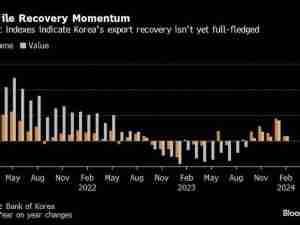U.K. and EU Agree on Outline Brexit Bill as Irish Block Remains
By: Nikos Chrysoloras and Ian Wishart | Nov 29 2017 at 06:07 AM | International Trade
U.K. and the European Union negotiators reached an outline deal on the Brexit divorce bill, clearing a hurdle in negotiations and ramping up pressure to find a compromise on the thorny issue of the Irish border. The pound surged.
Negotiators reached a preliminary agreement on the bill that still needs to go to national governments for approval, according to a person familiar with the situation. It’s up to EU leaders to accept the offer or not and they will do that in the run-up to a summit in mid-December. The U.K. government said “intensive talks” are ongoing to “build on recent momentum.”
For months, talks have been all but deadlocked over separation issues, meaning negotiations haven’t even started on the crucial terms of trade that will apply when Britain leaves in just 16 months time. Progress on the money leaves one major outstanding issue to be settled before talks can move on to trade: the politically sensitive Irish border. The U.K. has until Monday to come forward with a proposal for how a hard frontier can be avoided on the island of Ireland when it becomes home to the U.K.’s new land border with the EU.
“I hope I can report to the European Council that in the meeting we have been able to negotiate that deal—and that we have reached a very important step in our relations, if we find this very important point in the agreement in the next days,” chief EU negotiator Michel Barnier told a conference in Berlin. “We are not there yet.”
Prime Minister Theresa May and European Commission President Jean-Claude Juncker are scheduled to meet Monday for a lunch where she’s expected to present the formal offer. If EU governments accept, the next step is for them to declare at the Dec. 14 summit talks can now start on the future relationship between Britain and its biggest trading partner. Businesses are desperate for talks to start on the transition period that Britain wants to put in place after the split, and also want to see talks get going on the trade deal—where the real fights will be seen.
The pound strengthened as much as 0.7 percent, shares in U.K. banks rallied and bonds fell.
Avoiding a Number








